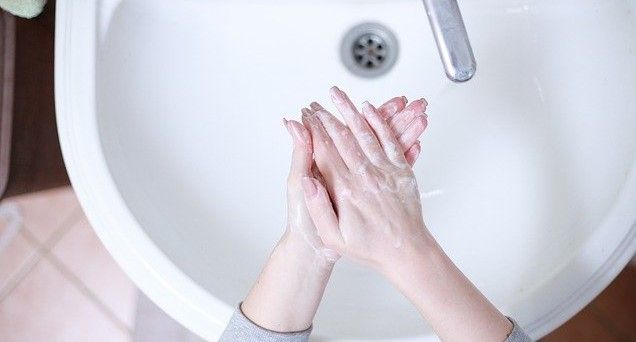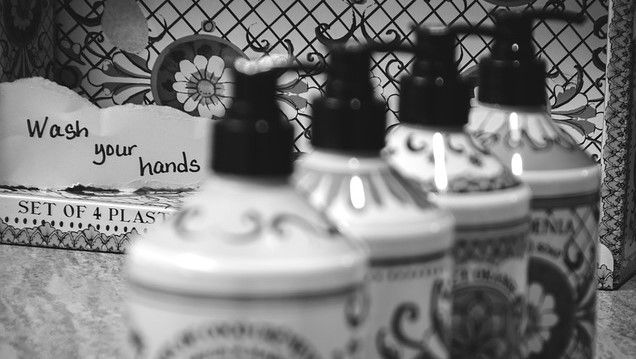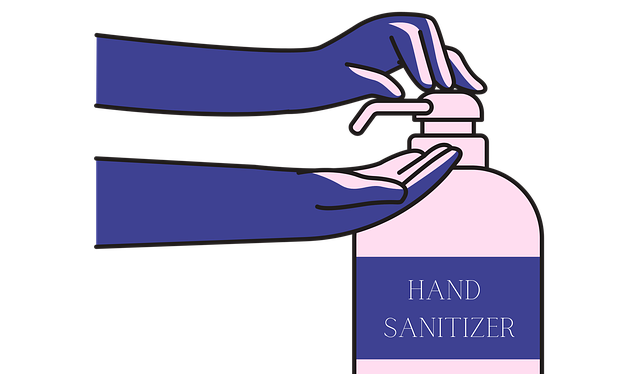We live in a health-conscious age, where we attempt to block out and minimise all risks. Food should be organic, water should be bottled, and the sun should be screened.
Yet we also live in a time of COVID19 where hundreds die daily from infection by a simple virus.
How can we minimise our risk of catching the coronavirus, while also maintaining our healthy standards in the long run?
At this stage in the pandemic, it is common knowledge that one of the best ways to avoid infection is through keeping our hands clean. A key step in doing this is by using hand sanitiser and disinfecting sprays, as a report from ABC news makes clear, “Washing hands with soap and water, or sanitising regularly with an alcohol-based sanitiser is always the first line of defence against any sort of contagious virus or infection.”

But as the pandemic drags on, people are wondering if their hand sanitisers are safe to use for such a long time.
Can hand sanitiser reduce my immunity to infections? Do hand sanitisers have side effects? Will the continued use of hand sanitiser negatively impact my health?
1. Can hand sanitiser reduce my immunity to infections?
“There’s no risk that the overuse [of hand sanitiser] is making us more susceptible to other bugs or bacteria,” says Australasian Society of Cosmetic Dermatologists president Dr Greg Goodman. His thinking is based on logic. As he points out, “Nobody relies on getting bugs on their hands to increase immunity.”
Adding that, “It’s not absorbed through your skin to any degree at all, so there’s no risk there either.”
In fact, Goodman, who is also a director at the Dermatology Institute of Victoria, believes that soap does more damage to our skin than hand sanitiser. This means that spending too much time at the sink can cause health problems.
Dr Li-Chuen Wong, head of the dermatology department at Sydney's Westmead Children's Hospital, agrees. “If you wash so much your skin is raw you're prone to getting bacterial infections,” she says.

And while health-conscious people may worry about the alcohol in hand sanitisers destroying the healthy bacteria as well as the bad pathogens, Dr Wong says this doesn’t make sense during a pandemic.
“That [theory] comes from studies of kids with allergies, hayfever and asthma, or from people work with large animals, such as horses and farm animals.”
2. Do hand sanitisers have side effects?
The biggest risk from hand sanitiser is if your skin dries out, as this can lead to cracking or flaking of the surface which opens up your body to the risk of infection.
The simplest defence against dry skin is moisturising. This can be done even after you have used a sanitiser and allowed your hands to dry.
“That's not going to remove the bacterial effect,” advises Dr Goodman.
3. Will the continued use of hand sanitiser negatively impact my health?
Both Goodman and Wong agree that there is no serious risk from long-term use of hand sanitiser. Instead, follow the products instructions and use plenty of common sense.
“Don't wash hands before or after you have used a hand sanitiser,” says Dr Wong says. “[And] always moisturise after using a hand sanitiser, and avoid wearing gloves when your hands are wet from the sanitiser.”

Additionally, Dr Goodman recommends that everyone have their own private supply of hand sanitiser products.
“I think a personal hand sanitiser is not a terrible thing,” he says.
The reason for this is clear.
“What we've found is the instance of other infections like flus and colds have gone down tremendously this year so there is nothing wrong with a bit of cleanliness.”
And while he is cautious that people should not let the risk of infection destroy their lives, as a dermatologist he is pleased to see the widespread awareness of keeping hands clean.
“The public are probably using more sanitiser which is good,” he said. “I don't think people should become germaphobes, but we should keep this habit going at least until the vaccine has arrived.”
This is sensible advice. We do everything with our hands, from using the toilet, to eating, to taking the garbage out, to brushing our teeth, so keeping them free of bacteria and viruses just makes sense.
As Goodman notes, “Where hands have been can be pretty awful so it’s important to clean them regularly.”
It is a logic that a decent hand sanitiser can help with.
AG PROTECT (who sponsor this website) is a Prague-based business offering a wide range of hand gels, sanitisers, and disinfecting products, all of which meet strict EU standards. To find out more, visit AG PROTECT.
Photo credit: Chesna, Martin Slavoljubovski from Pixabay, Lena Helfinger, & Enson Renton